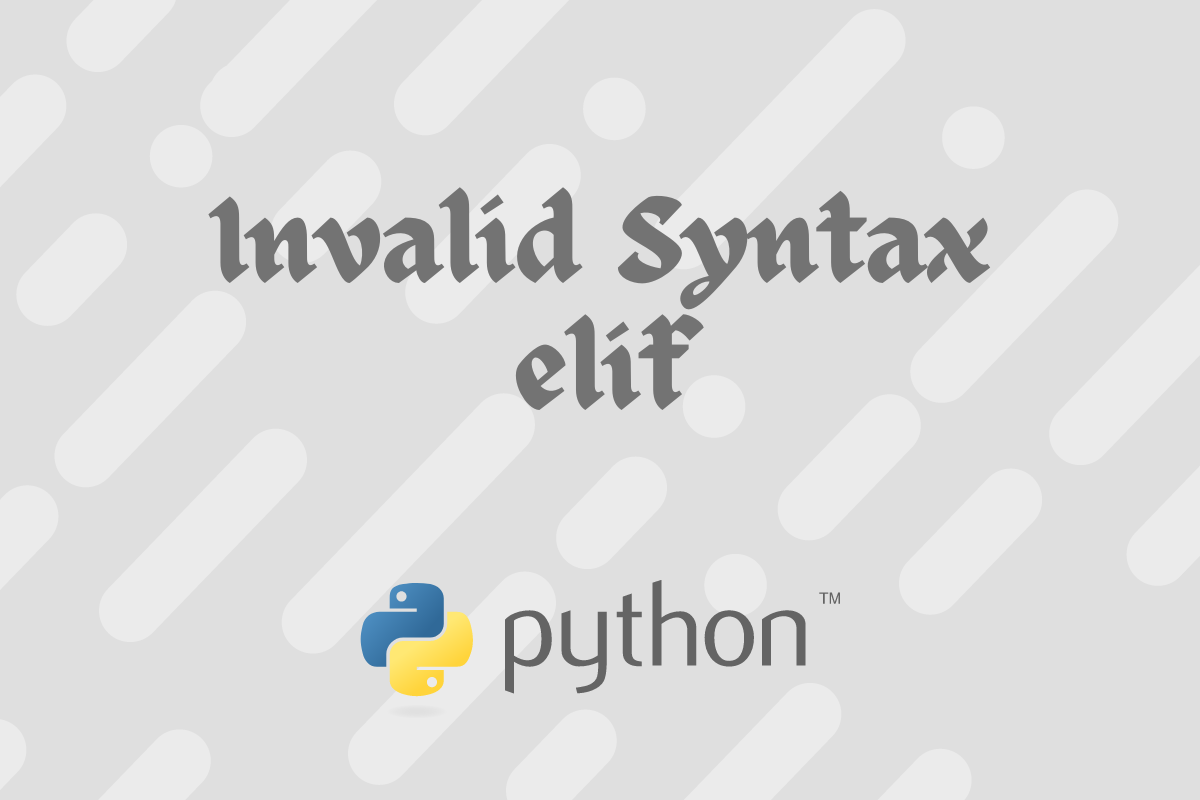Understanding Invalid Syntax in Python
Invalid syntax errors are among the most common errors Python developers encounter. These errors occur when code violates Python's grammar rules. Understanding and fixing syntax errors is crucial for writing correct Python code.
Common Invalid Syntax Errors and Solutions
1. Missing Colons
# ❌ Incorrect
if x == 5
print("x is 5")
# ✅ Correct
if x == 5:
print("x is 5")2. Incorrect Indentation
# ❌ Incorrect
def my_function():
print("This is wrong")def my_function():
print("This is correct")
3. Missing or Mismatched Parentheses
# ❌ Incorrect
print("Hello"
# ✅ Correct
print("Hello")
# ❌ Incorrect
if (x == 5:
print("Missing parenthesis")
# ✅ Correct
if (x == 5):
print("Correct parentheses")4. Invalid Variable Names
# ❌ Incorrect
2variable = 42
class = "Python"
# ✅ Correct
variable2 = 42
class_name = "Python"5. Using Keywords as Variables
# ❌ Incorrect
def = "Definition"
class = "Python Class"
# ✅ Correct
definition = "Definition"
class_name = "Python Class"Complex Syntax Issues
1. List Comprehension Errors
# ❌ Incorrect
squares = [x for x in range(10) if x % 2 == 0 for x * x]
# ✅ Correct
squares = [x * x for x in range(10) if x % 2 == 0]2. Lambda Function Syntax
# ❌ Incorrect
lambda x: if x > 0: return x
# ✅ Correct
lambda x: x if x > 0 else 03. Multiple Statement Issues
# ❌ Incorrect
x = 5; y = 10; if x > y: print("x is greater")
# ✅ Correct
x = 5
y = 10
if x > y:
print("x is greater")Common Mistakes by Python Version
Python 3.x Specific Issues
# ❌ Incorrect (Python 2 style print)
print "Hello World"
# ✅ Correct (Python 3)
print("Hello World")
# ❌ Incorrect division
print 5/2
# ✅ Correct division
print(5/2) # Returns float
print(5//2) # Returns integerf-String Syntax Errors
# ❌ Incorrect
name = "John"
print(f'Hello {name + }')
# ✅ Correct
name = "John"
print(f'Hello {name}')Debugging Tips
You can find the cause of these issues through debugging. Here are some few tips to get you started.
1. Reading Error Messages
# Error Message Example
"""
File "script.py", line 5
if x == 5
^
SyntaxError: invalid syntax
"""2. Using an IDE with Syntax Highlighting
# Most IDEs will highlight syntax errors
def incorrect_function() # IDE will show missing colon
print("This has an error")Best Practices to Avoid Syntax Errors
1. Consistent Indentation
# ✅ Good Practice
def my_function():
if condition:
do_something()
for item in items:
process(item)2. Proper String Formatting
# ✅ Good Practice
name = "John"
age = 30
# Using f-strings
print(f"Name: {name}, Age: {age}")
# Using .format()
print("Name: {}, Age: {}".format(name, age))3. Proper Function Definitions
# ✅ Good Practice
def calculate_average(numbers):
if not numbers:
return 0
return sum(numbers) / len(numbers)Advanced Syntax Considerations
1. Decorators
# ❌ Incorrect
@decorator
def my_function():
# ✅ Correct
@decorator
def my_function():
pass2. Context Managers
# ❌ Incorrect
with open('file.txt') as f
content = f.read()with open('file.txt') as f:
content = f.read()
Troubleshooting Checklist
- Check for missing colons after:
- if statements
- for loops
- while loops
- function definitions
- class definitions
- Verify proper indentation:
- Use consistent spaces (4 spaces recommended)
- Align related blocks of code
- Check parentheses, brackets, and quotes:
- All opening symbols have matching closing symbols
- Strings are properly closed
- Verify variable names:
- Don't start with numbers
- Don't use Python keywords
- Use valid characters (letters, numbers, underscore)
Common Solutions for Specific Errors
The are several solutions to fix these syntax errors.
1. EOL (End of Line) Errors
# ❌ Incorrect
print("This string never ends...
# ✅ Correct
print("This string properly ends...")2. Invalid Character Errors
# ❌ Incorrect
name = "John" # Using fancy quotes
age = 30
# ✅ Correct
name = "John" # Using standard quotes
age = 30Understanding how to fix syntax errors is a crucial skill for Python developers. By following proper coding conventions and being aware of common pitfalls, you can avoid many syntax errors. When errors do occur, systematic debugging and careful attention to Python's syntax rules will help you resolve them quickly.
More Articles from Python Central

